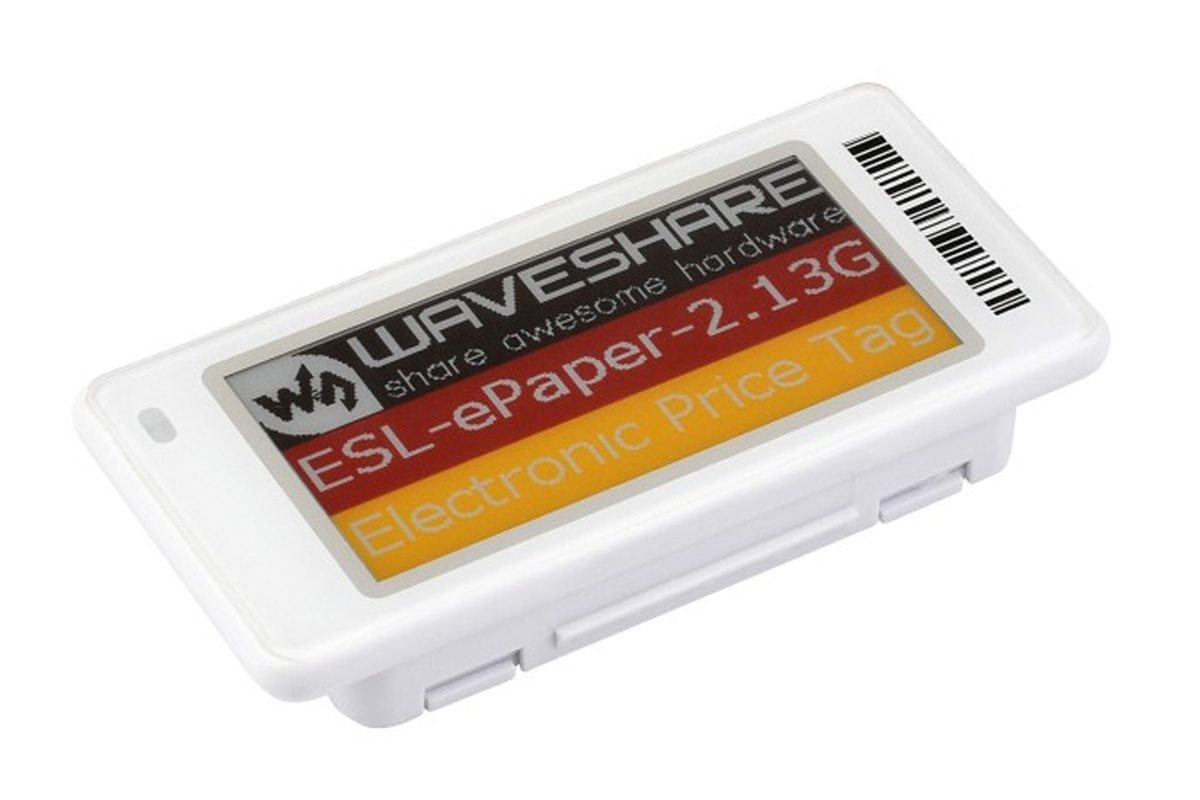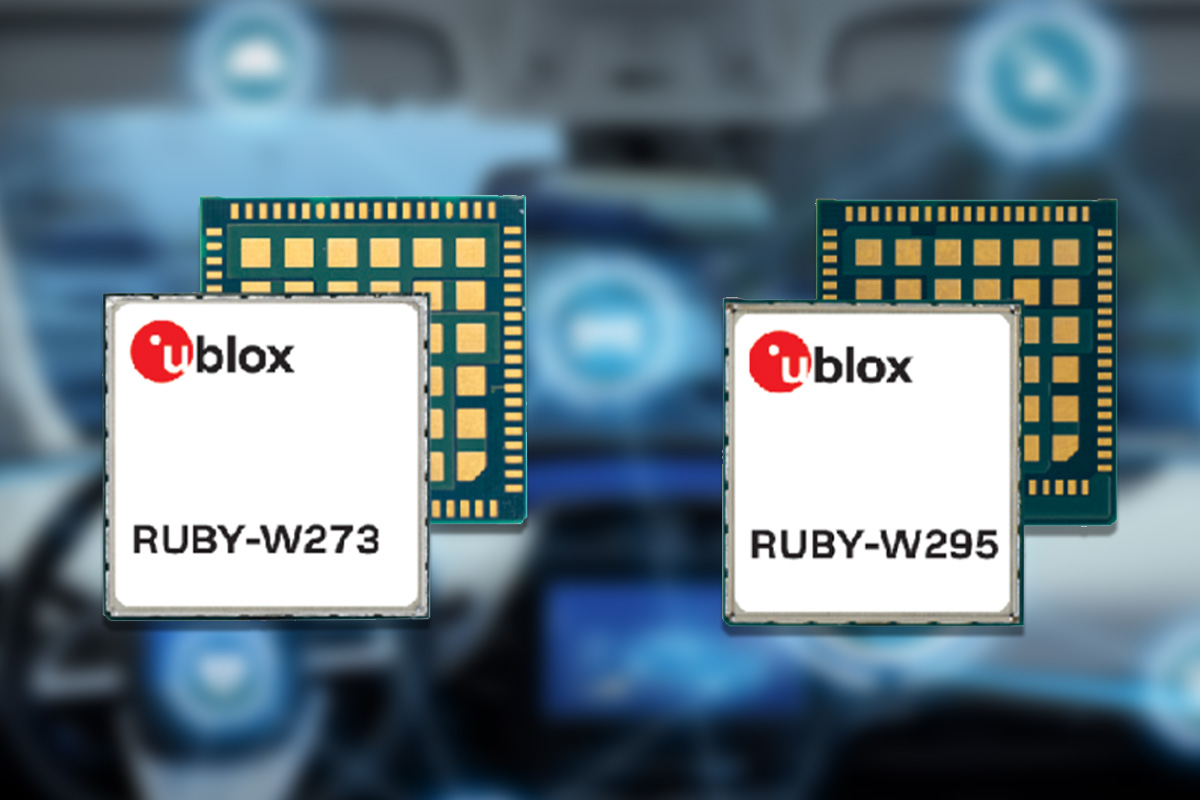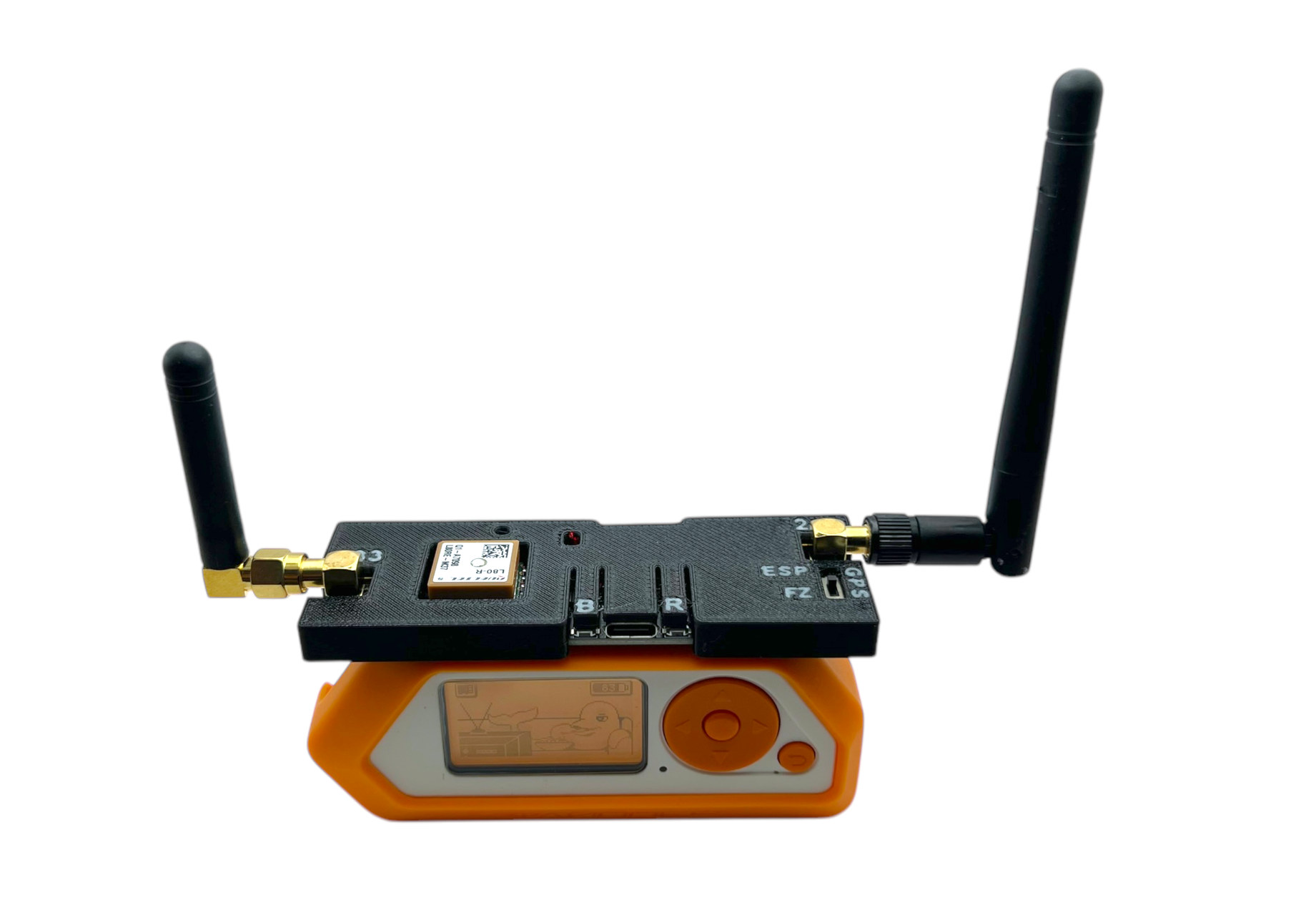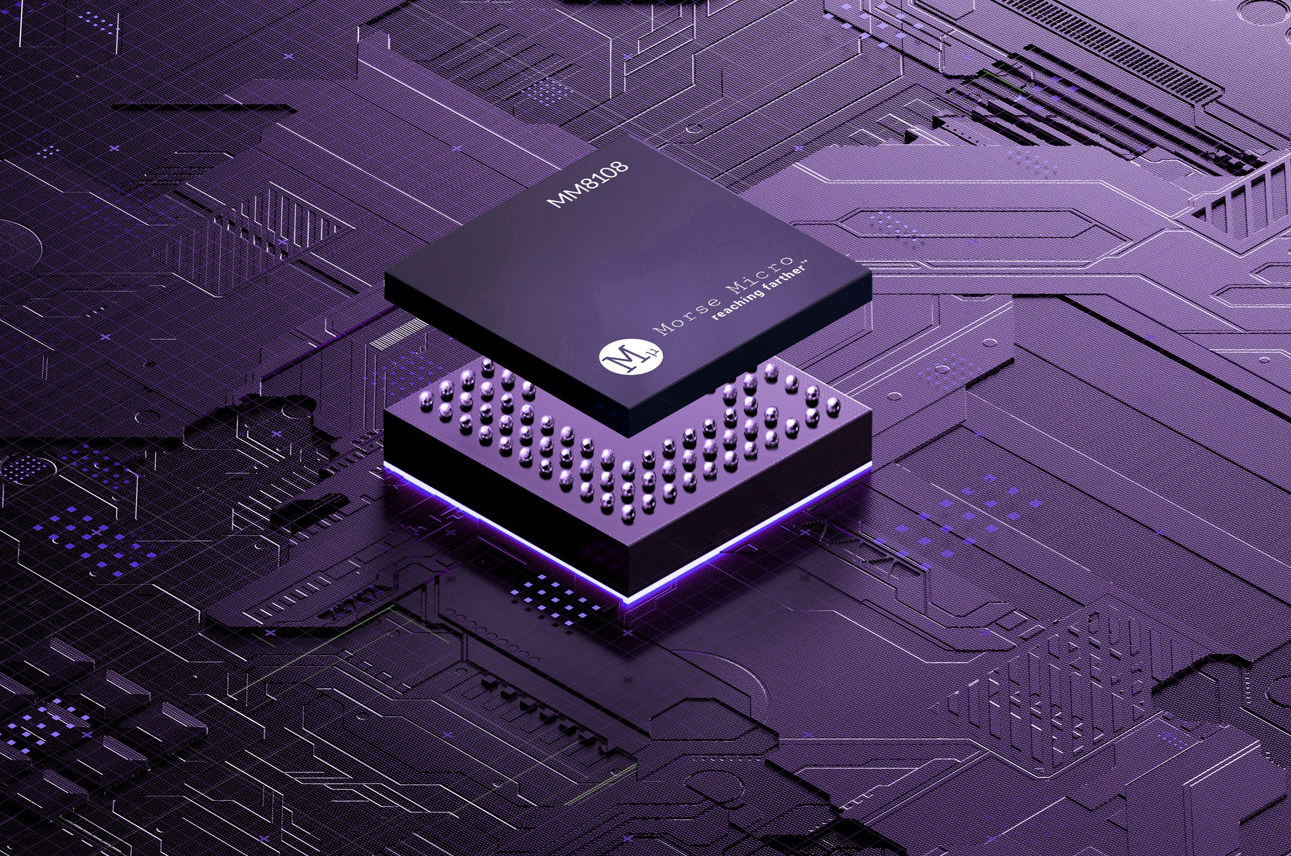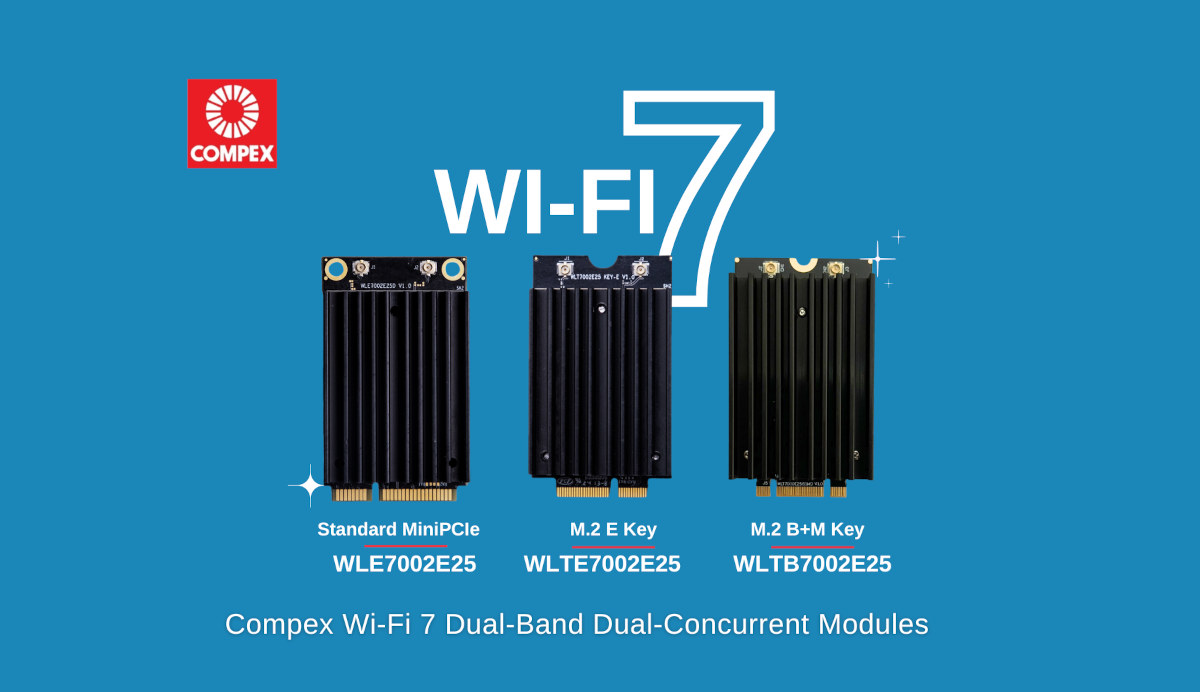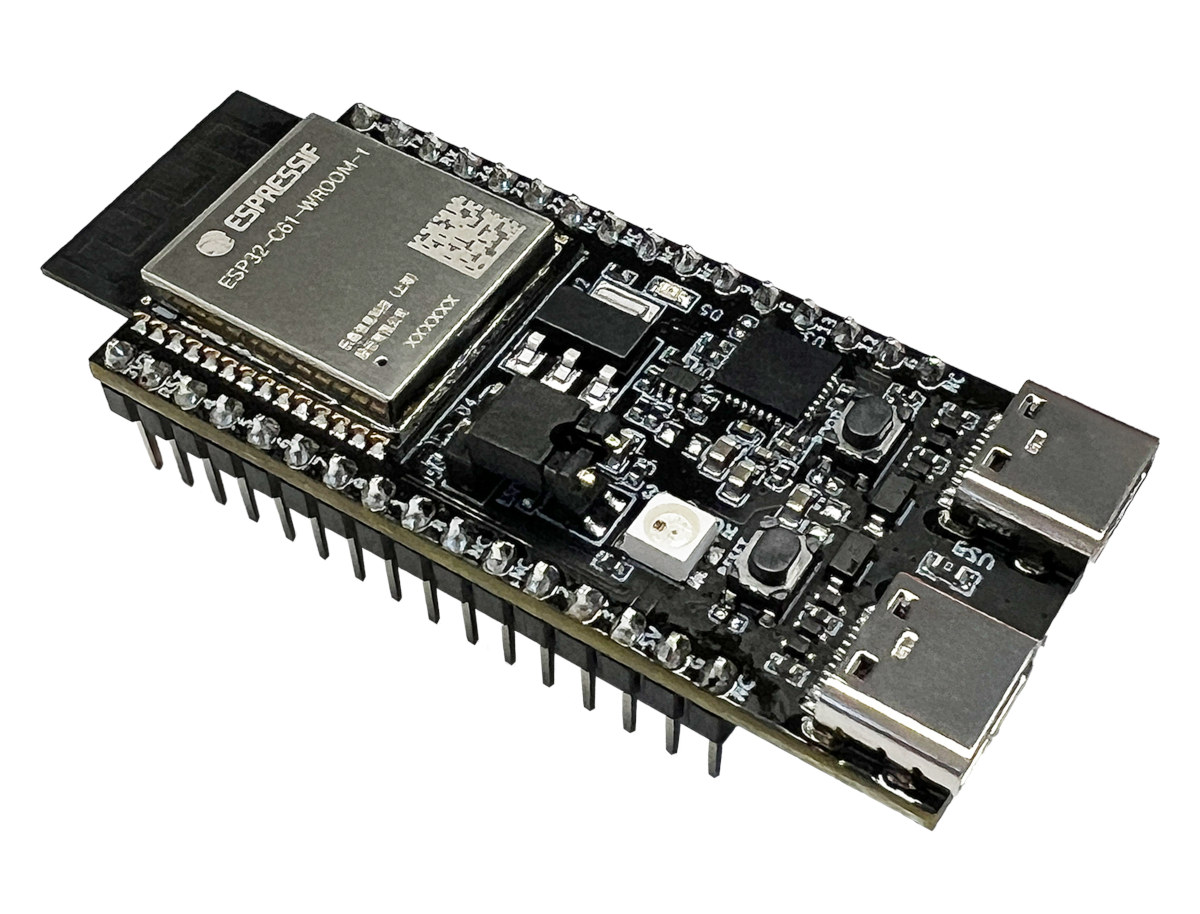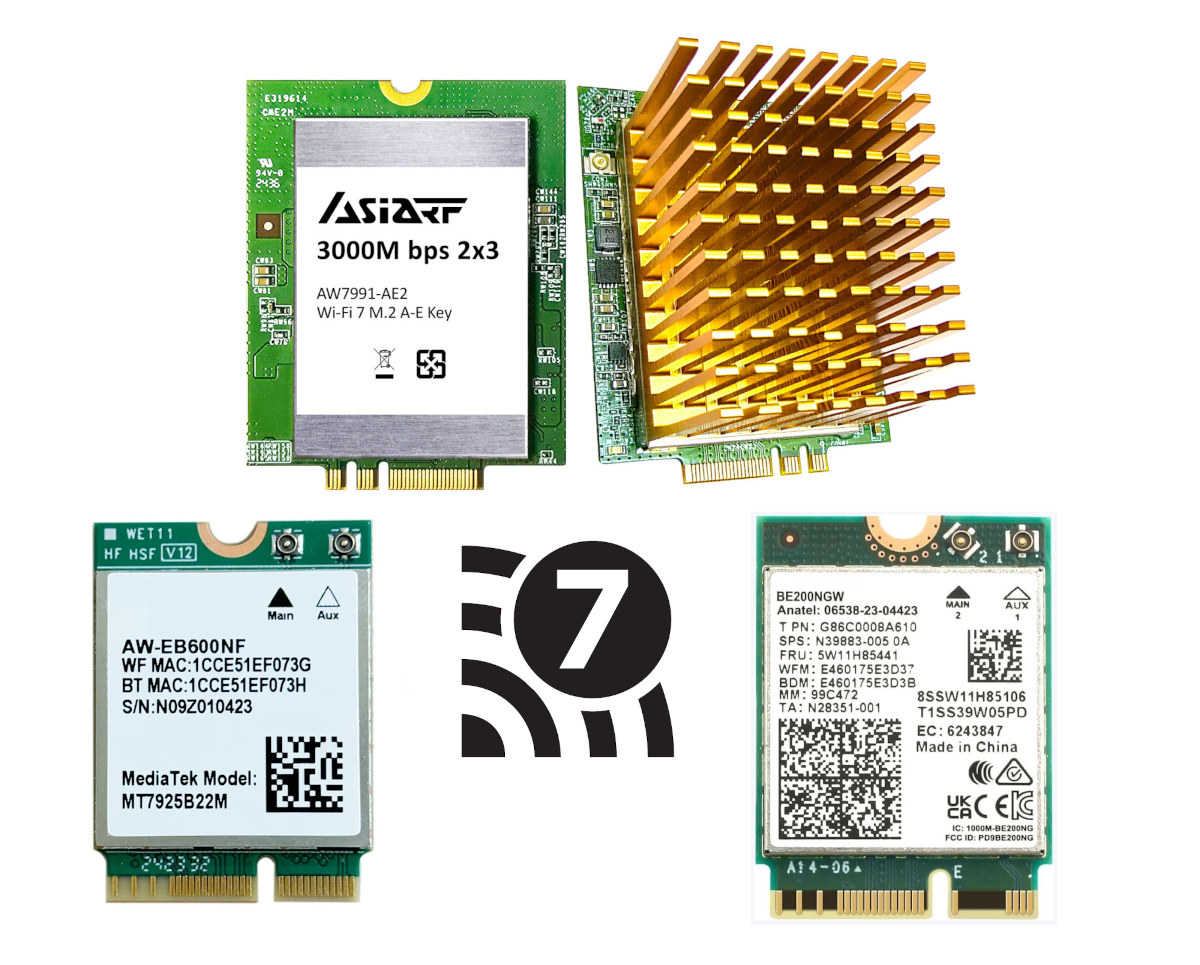Waveshare recently launched a series of dot matrix ESL color e-paper displays with Bluetooth and NFC connectivity designed for various IoT, retail, industrial, and similar applications. These Electronic Shelf Label (ESL) displays can be updated through a wireless base station that enables device management using Waveshare’s cloud platform. The displays come with a 1,200mAh coin cell battery which according to Waveshare can last approximately 5 years and support four colors: red, yellow, black, and white. With a wide 178° viewing angle and housed in a durable ABS plastic case, they are ideal for applications such as price tags, shelf labels, asset tracking, and conference name tags. Waveshare ESL color e-paper displays specifications Display technology – E-Paper (Electrophoretic) Display colors – Red, Yellow, Black, White Display sizes – 2.13″, 2.66″, 2.9″, 3.5″ (Dot Matrix) Resolution / Pixel density / Display area 2.13″ – 250 × 122 pixels / 130 DPI / 48.55 × […]
u-blox RUBY-W2 is a family of Wi-Fi 7 automotive-grade modules for infotainment and telematics applications
u-blox has recently released the RUBY-W2 series (RUBY-W273-05A and RUBY-W295-05A) of automotive Wi-Fi 7 modules designed for advanced infotainment and telematics applications. These modules support tri-band Wi-Fi 7 and dual-mode Bluetooth 5.4, with up to Gbps (PHY) of throughput, supporting simultaneous use cases for in-car hotspots, Apple CarPlay, and multi-client video streaming. Key features of this module include Multi-Link Operation (MLO) with Dual Band Simultaneous (DBS) and High Band Simultaneous (HBS) modes, 2×2 MU-MIMO, Bluetooth LE Audio, long-range Bluetooth, security with WPA2/3, and secure boot. The modules are based on Qualcomm’s QCA6787AQ or QCA6797AQ automotive chipsets and connect to the host via PCIe for Wi-Fi and UART/PCM for Bluetooth. RUBY-W2 specifications: Chipset Qualcomm QCA6787AQ for RUBY-W273 Qualcomm QCA6797AQ for RUBY-W295) Wireless Tri-band Wi-Fi 7 (802.11 a/b/g/n/ac/ax/be) RUBY-W273 – Dual Band Simultaneous (DBS) (2.4 GHz + 5/6 GHz) RUBY-W295 – High Band Simultaneous (HBS), any two bands (2.4, 5, or 6 […]
FlipMods Combo is a 3-in-1 Flipper Zero expansion module with ESP32, GPS, and CC1101 modules
Sacred Labs’ FlipMods Combo is a 3-in-1 expansion module for the Flipper Zero that combines an ESP32 WiFi and Bluetooth SoC, Texas Instruments CC1101 Sub-GHz wireless microcontroller, and an unnamed GPS module. The expansion module is housed in a neat 3D-printed case and features a built-in GPS antenna, external WiFI/Bluetooth & Sub-Ghz antennas, as well as a switch to send the GPS data to the ESP32 chip or the Flipper Zero. The ESP32 module is preloaded with the Marauder firmware also used in the ESP32 Marauder Pocket Unit and Mayhem v2 for Flipper Zero for penetration testing with Wi-Fi scanning, de-authentication attacks, packet sniffing, and more. FlipMods Combo specifications: Wireless modules ESP32-WROOM-32UE for WiFi and Bluetooth; external SMA antenna (long) Texas Instruments CC1011 for 315, 433, 868, and 915MHz ISM bands; external SMA antenna (short) GPS module with internal antenna Storage – MicroSD card slot up to 32GB USB – […]
Morse Micro MM8108 WiFi HaLow SoC supports up to 43.33 Mbps transfer rate, improves range and power efficiency
Morse Micro MM8108 is a new WiFi HaLow (802.11ah) SoC with a throughput of up to 43.33 Mbps, and improved range and power efficiency compared to its predecessor the Morse Micro MM6108 introduced in 2022 and supporting up to 32.3 Mbps transfer rate. The new chip is also smaller at just 5x5mm in a BGA package instead of 6x6mm in a QFN48 package for the MM6108/MM6104, adds a USB 2.0 host interface besides SDIO 2.0 and SPI, as well as a MIPI RFFE (Radio Frequency Front-End) for integration and interoperability with multi-radio systems. Morse Micro MM8108 specifications: 32-bit RISC-V Host Applications Processor (HAP) Single-Chip IEEE802.11ah Wi-Fi HaLow transceiver for low-power, long-reach IoT applications Worldwide Sub-1 GHz frequency bands (850MHz to 950MHz) On-chip 26 dBm power amplifier with support for external FEM (Front End Module) option 1/2/4/8 MHz channel bandwidth for up to 43.3 Mbps data rate using 256-QAM modulation at […]
Compex Systems expands its dual-band Wi-Fi 7 lineup with new M.2 variants (Sponsored)
Compex Systems (Compex) is set to take wireless connectivity to the next level with the latest expansion of its popular dual-band Wi-Fi 7 module lineup. Introducing the new M.2 variants, including WLTB7002E25 with an M.2 B+M Key and the WLTE7002E25 with an M.2 E Key, these additions complement the Compex’s existing WLE7002E25, which features the popular standard mini PCIe form factor. Together, these Wi-Fi 7 modules offer comprehensive solutions with enhanced performance, flexibility, and compatibility — all at competitive Wi-Fi 6 prices. Powered by Qualcomm’s QCN6224, QCN6274 and QCN9274 Waikiki series radio chipsets, the WLE/WLTE/WLTB7002E25 are dual-band concurrent 2.4+5GHz Wi-Fi 7 (802.11be) modules, offering wider signal coverage by transmitting both bands concurrently, reducing latency with Multi-Link Operation (MLO) support, featuring OFDMA and 4096 QAMs. Delivering up to 20dBm per chain, these 2×2 MU-MIMO models are ideal for enterprise, industrial, cybersecurity, transportation, and SMB applications. “Our expanded Wi-Fi 7 module lineup […]
ESP32-C61-DevKitC-1 development board features ESP32-C61 low-cost WiFi 6 and Bluetooth LE 5.0 SoC
The ESP32-C61-DevKitC-1 is a development board based on the upcoming ESP32-C61 low-cost WiFi 6 and Bluetooth LE 5.0 SoC that was first unveiled in January 2024, and offered with two USB-C ports, two buttons, an RGB LED, and GPIO headers. In my 2024 year in review report, I noted that Espressif would likely launch the ESP32-C5 dual-band WiFi 6 SoC in 2025, but I completely forgot about the ESP32-C61 which is basically a cost-down version of the ESP32-C6. I’ve now noticed the documentation of the ESP32-C61-DevKitC-1 development board and ESP32-C61-WROOM-1 module is now available, so we have more details about those and the ESP32-C61 itself, so let’s have a closer look. ESP32-C61-DevKitC-1 specifications: Wireless module – ESP32-C61-WROOM-1 SoC – ESP32-C61HR2 CPU – Single 32-bit RISC-V core clocked up to 120MHz Memory – 320KB SRAM, 2MB PSRAM Storage – 256KB ROM Wireless – WiFi 6 and Bluetooth LE 5.0 Storage – […]
WiFi 7 access point and client M.2 modules are cheaper than I thought
We have already seen WiFi 7 mini PCIe and M.2 modules from Compex for business customers, but I’ve recently noticed AsiaRF AW7991-AE2 M.2 module rated BE5000 offers an affordable alternative design for access points for just $58 plus shipping. But adding WiFi 7 to a consumer device can be cheaper than I expected as Intel BE200 or MediaTek MT7925-based M.2 modules can be purchased for around $20 to $30. Let’s have a look at some of the options available. AsiaRF AW7991-AE2 dual-band WiFi 7 “access point” M.2 module AsiaRF AW7991-AE2 specifications: SoC – MediaTek MT7991AV (Filogic 660?) with 32bit RISC-V MCU for Wi-Fi protocol and Wi-Fi offload Chipset – MT7976C WiFI 6 3×3 MIMO chipset System Memory – 8MB WLAN IEEE 802.11a/b/g/n/ac/ax/be compliant Frequency bands 2.4GHz – Bandwidth: 20/40MHz; 2T2R 2ss 5GHz – Bandwidth:20/40/80/160MHz; T3R 3ss Dual-Band Dual Concurrent (DBDC) Supports up to 4096-QAM Data rate of up to 688Mbps […]
Murata Type 2FR is the world’s smallest tri-radio IoT module with Wi-Fi 6, Bluetooth 5.4, and Thread connectivity
Murata has recently launched the world’s smallest tri-radio IoT modules, the Type 2FR/2FP series, as well as the Type 2KL/2LL series for hosted solutions. These compact modules feature tri-radio communication, including Wi-Fi 6, Bluetooth 5.4, and Thread, with Matter provisioning for interoperability. The 2FR/2FP series is considered the world’s smallest module (12.0 x 11.0 x 1.5mm) of this type with a built-in MCU, making it ideal for low-cost and highly integrated solutions. It prioritizes security with the latest cybersecurity standards and compatibility with the Matter ecosystem. On the other hand, the 2KL/2LL series is designed to work with high-performance processors running Linux or RTOS. These modules provide reliable tri-radio communication with advanced capabilities. Both series are designed for applications, including smart homes, buildings, industrial automation, healthcare, and more, with features like low-power operation, extended battery life, and reduced component count. Murata Type 2FR/2FP modules specifications: MCU – NXP RW610 or RW612 […]


